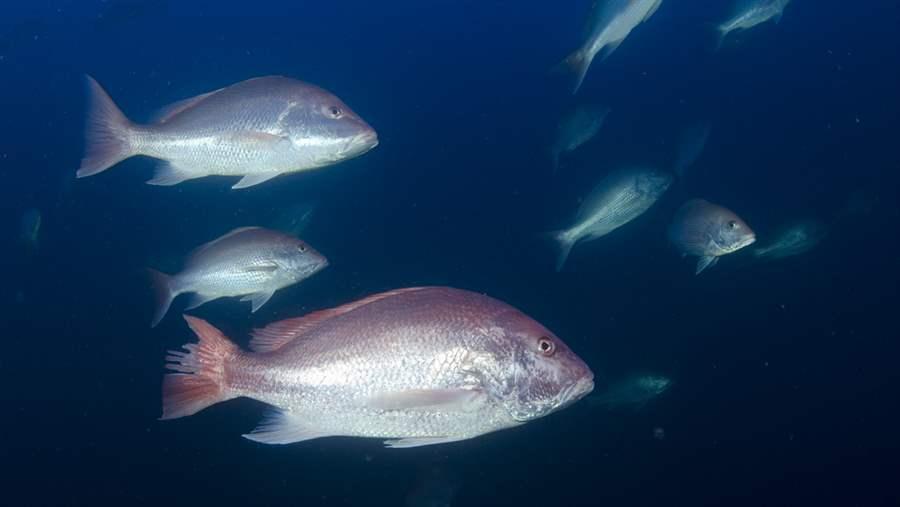5 Reasons the Proposed Red Snapper Bill Is Bad for U.S. Fisheries Management
 © Texas Parks & Wildlife
© Texas Parks & WildlifeOn June 15, the U.S. House of Representatives Committee on Natural Resources passed, by a 24-14 vote, a bill (H.R. 3094) that would significantly weaken conservation and management of American red snapper in the Gulf of Mexico. Pew, along with hundreds of commercial fishermen, charter captains, seafood industry businesses, and conservation groups, oppose this ill-conceived bill.
Red snapper in the Gulf of Mexico had been subject to chronic overfishing for decades, but the population is on a path to recovery thanks to effective conservation measures by fishery managers. The red snapper quota for commercial and recreational fishermen, including those on charter boats, has almost tripled in the past eight years—from 5 million pounds in 2008 to 13.96 million pounds in 2016.
This rebound is due to efforts of the regionally based, stakeholder-driven management process run by the Gulf of Mexico Fishery Management Council under the authority of the Magnuson-Stevens Fishery Conservation and Management Act, a hallmark law designed to prevent overfishing, ensure that management decisions follow scientific advice, and rebuild depleted stocks.
If enacted, H.R. 3094 would threaten this progress with provisions that:
- Restrict fishermen and other stakeholders’ participatory roles in management decisions on red snapper.
- Undermine requirements for sustainable and equitable management of red snapper, such as those to establish science-based annual catch limits that prevent overfishing and ensure a timely rebuilding of depleted populations.
- Create a new, untested management authority that could make decisions based on the votes of as few as three state bureaucrats.
- Reduce scientific rigor and transparency in comparison to the current system.
- Set a precedent for other fisheries to be removed from management under the Magnuson-Stevens Act.
More detail on these concerns can be found in a letter Pew delivered to the committee in advance of the vote. Given how H.R. 3094 would undermine the significant progress in restoring red snapper in the Gulf of Mexico and weaken the Magnuson-Stevens Act, we strongly encourage House leadership to not bring this bill to the floor.
Ted Morton leads The Pew Charitable Trusts’ fisheries work at the federal level. Holly Binns directs Pew’s efforts to protect ocean life in the Gulf of Mexico, the U.S. South Atlantic Ocean, and the U.S. Caribbean.












